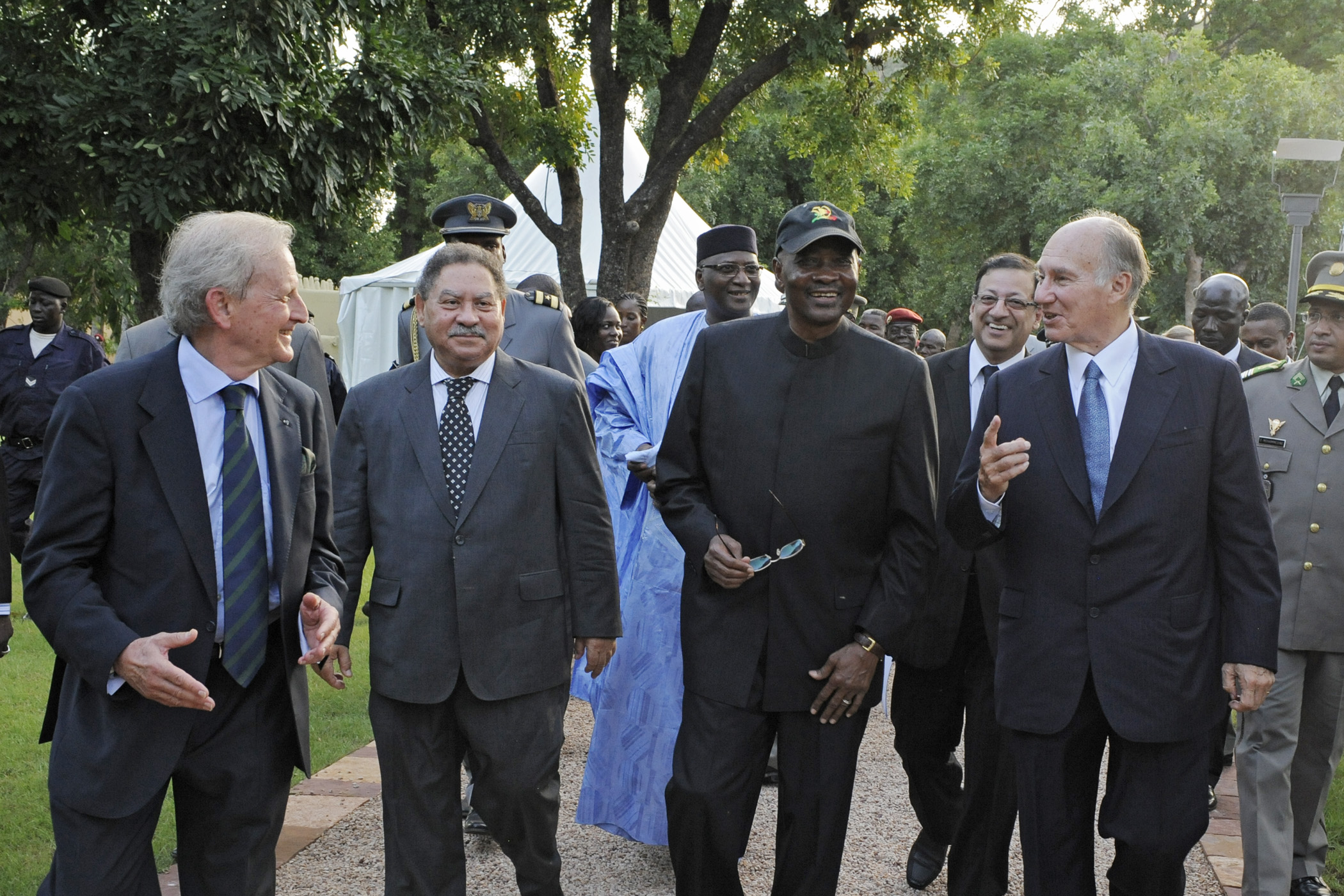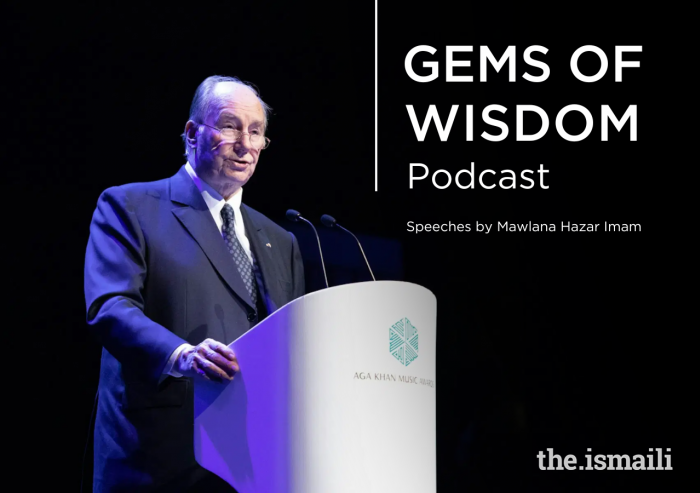The West African country of Mali has a rich heritage of culture and tradition. Islam has flourished in the region since the 8th century, and Mali is home to ancient centres of learning like Sankoré, Djingarey Ber and Sidi Yahya in Timbuktu. Together with other cities in the Niger River valley, like Bamako and particularly Djenné, Timbuktu was an important trading hub, facilitating much of the trans-Saharan trade between the 15th and 17th centuries.
With the flow of goods and people came ideas, knowledge and innovation, and these cities became important cultural centres for all of West Africa. It was in these cities that vast libraries were built and madrasas and Islamic universities were endowed. Traditional openness to external ideas has helped nourish Mali's own self understanding, values and identity. It continues to be known for its distinctive mud-brick architecture, examples of which include the Great Mosques of Djenné, Komoguel in Mopti and Djingarey Ber in Timbuktu.
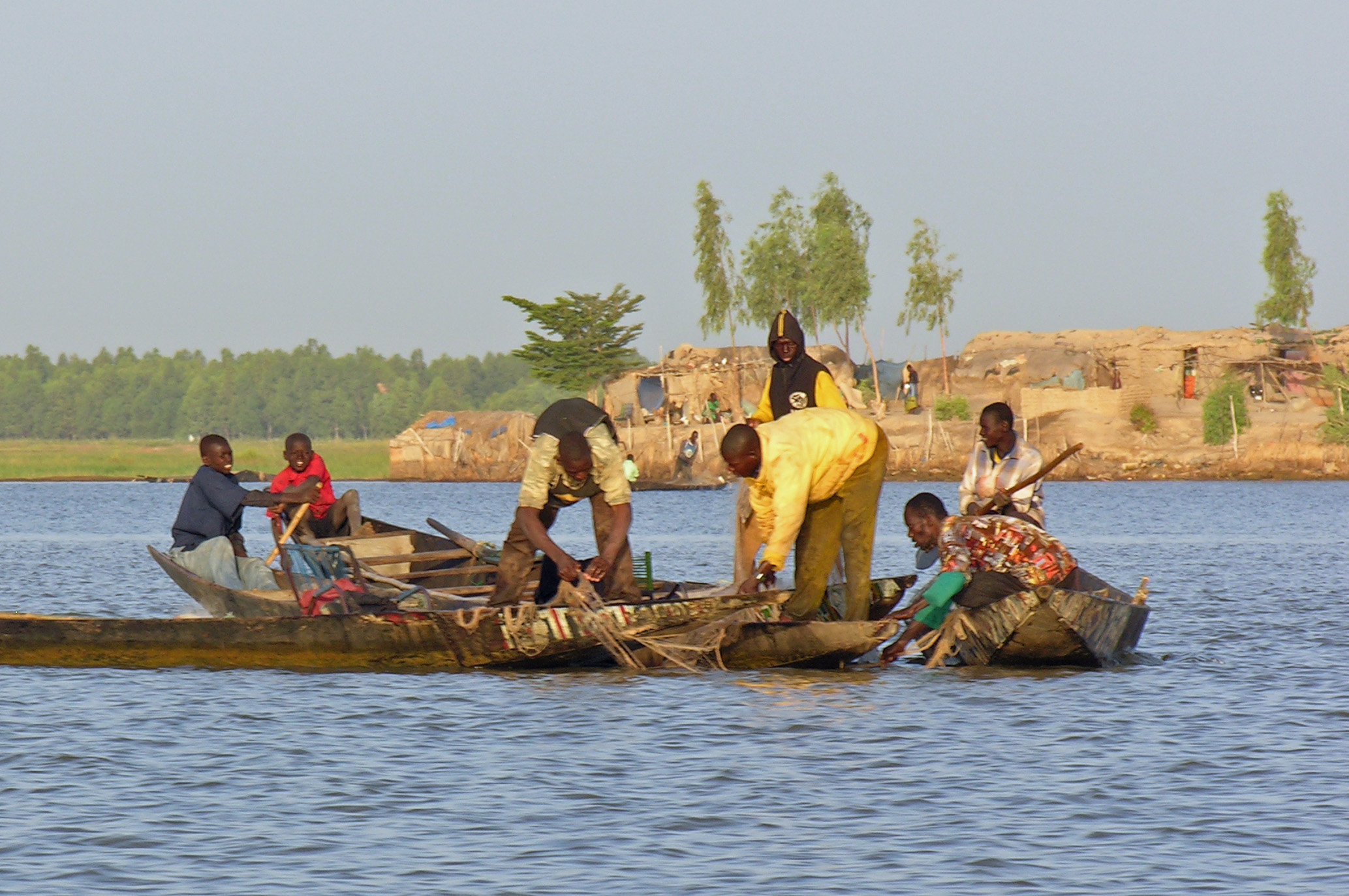 A group of fishermen on pirogues come together on the Niger River. The river and its tributaries are fished extensively, mainly for catfish and tilapia, which is then dried, smoked and consumed locally or exported to neighbouring countries. Courtesy of AKDN
A group of fishermen on pirogues come together on the Niger River. The river and its tributaries are fished extensively, mainly for catfish and tilapia, which is then dried, smoked and consumed locally or exported to neighbouring countries. Courtesy of AKDNThe recent establishment of the National Park of Mali marks a milestone in the evolution of the Aga Khan Development Network's activities in West Africa. Situated in Bamako, the 103-hectare Park was developed under a public-private partnership between the Government of Mali and the Aga Khan Trust for Culture, and was inaugurated in September by the President of Mali, Amadou Toumani Touré, and Mawlana Hazar Imam as part of ceremonies marking the 50th anniversary of the Mali's independence.
AKDN's involvement in the region dates back to the 1960s, when neighbouring Côte d'Ivoire sought assistance with its industrial development. Initial investments were made in the packaging sector, which supported the country's cocoa and coffee industries, and led, in the 1990s, to expansion in neighbouring countries and other sectors, notably cotton, sugar, energy, and aviation. Together with the introduction of innovative social development initiatives, the growth in economic activity transferred knowledge and technology, expanded capacity and signalled greater confidence in the region.
In October 2003, at the invitation of the then newly elected President Amadou Toumani Touré, Mawlana Hazar Imam travelled to Mali and visited the historic site of the Great Mosque of Djenné – the largest mud-brick building in the world. The visit culminated in the signing of an agreement to expand cooperation between the Republic of Mali and the AKDN. The agreement laid the groundwork for development activities in new areas like the cultural sector, where restoration of the Komoguel Mosque (also known as the Great Mosque of Mopti) was undertaken by the Aga Khan Trust for Culture.
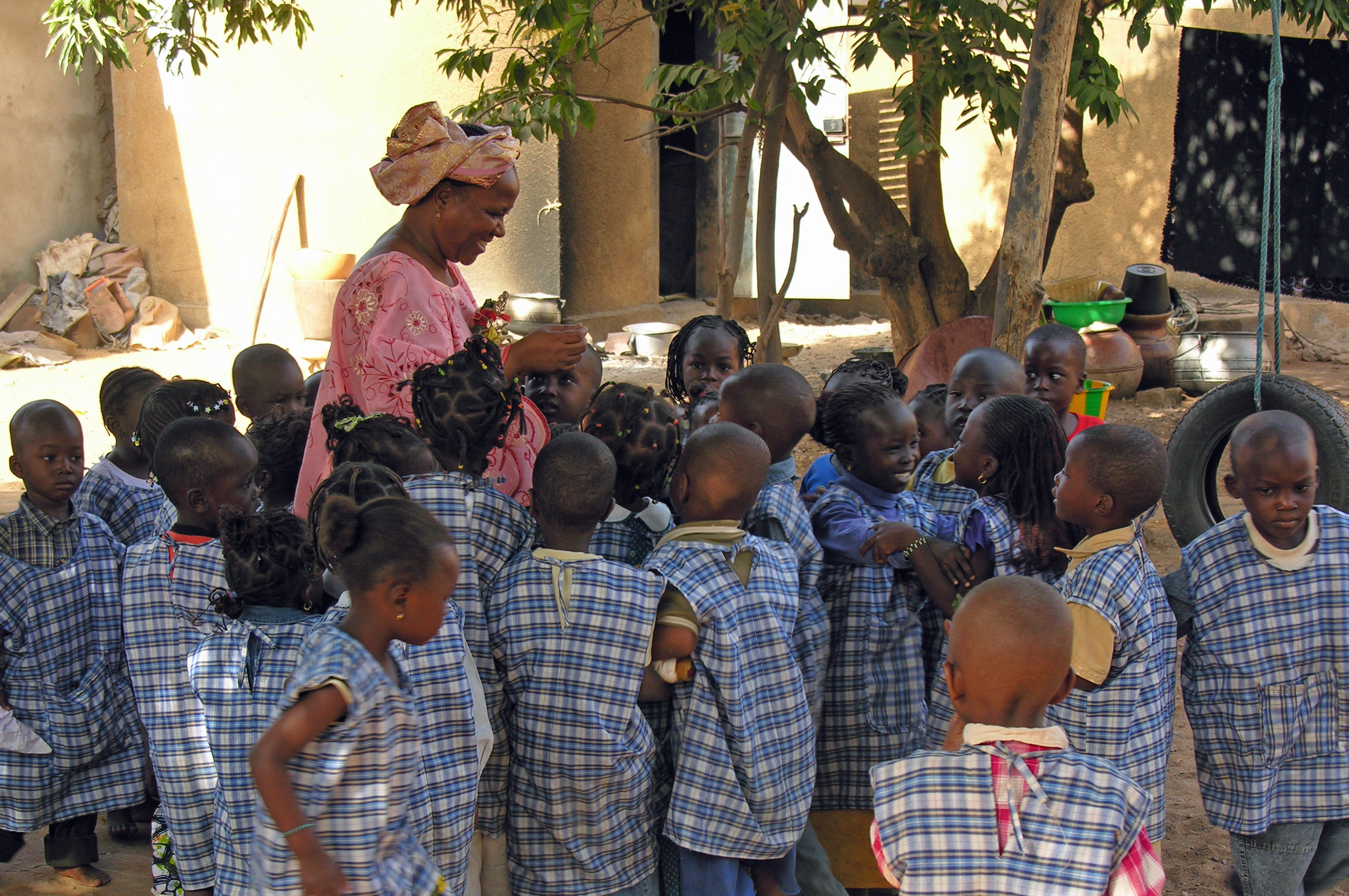 Children from a kindergarten in Bamako gather around their teacher. Early Childhood Development is an important focus of the Aga Khan Foundation, as part of their commitment to providing better early caring and learning environments for young children. Courtesy of AKDN
Children from a kindergarten in Bamako gather around their teacher. Early Childhood Development is an important focus of the Aga Khan Foundation, as part of their commitment to providing better early caring and learning environments for young children. Courtesy of AKDNIn 2005, during Mawlana Hazar Imam's second visit to Mali, the partnership was further strengthened with the signing of an agreement of cooperation between the Republic of Mali, the Ismaili Imamat and the AKDN. The agreement foresaw further cooperation in social, cultural and economic development, as well as the establishment of an AKDN Representation office in Mali. AKDN has since enhanced its working relationships and established successful development partnerships with many local communities and civil society organisations.
“Having collaborated with the Aga Khan Foundation for some time now, I've discovered a distinctiveness about this organisation that is most admirable,” adds Fatoumata Konaté, President of the Reading Committee for Children in the village of Madiama. “This is [due to] the significance and visibility of its activities; its pragmatism and the quality of the work that it undertakes.”
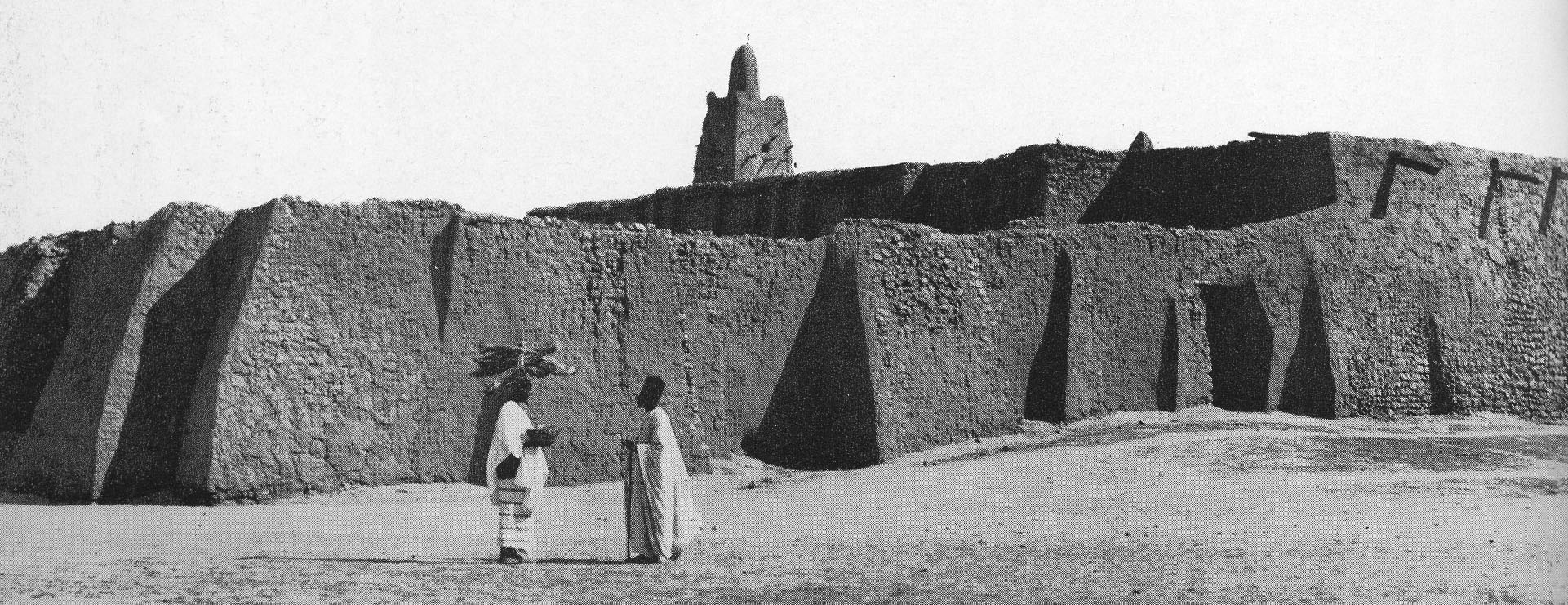 A historical photograph shows Djingarey Ber Mosque in the early 1900s. The Timbuktu mosque is also known as an important and ancient centre of learning. Courtesy of the Aga Khan Trust for Culture
A historical photograph shows Djingarey Ber Mosque in the early 1900s. The Timbuktu mosque is also known as an important and ancient centre of learning. Courtesy of the Aga Khan Trust for CultureThe Trust's restoration of Komoguel was completed in June 2006. The mosque is situated in the port city of Mopti – the fourth largest city in the country – but the Mopti region is also one of the country's most impoverished. In 2007, the Mopti Coordinated Area Development Programme was established by the Aga Khan Foundation, with aims to improve income levels and food security, provide access to quality education in schools and madrasas, to improve basic health among the population – notably through rural health services – and to contribute to the emergence of a strong, dynamic and competent civil society.
The Aga Khan Agency for Microfinance also works in urban and rural areas of the country, offering a range of products including individual urban loans, group loans, agricultural input loans, storage-marketing loans, cattle fattening loans, and free deposit accounts to encourage savings.
 Traditional mud-bricked granaries in Mali are used to store cereals between harvests. They are built above the ground to protect the grain from rodents and damp, and sometimes have finely decorated doors. Courtesy of AKDN
Traditional mud-bricked granaries in Mali are used to store cereals between harvests. They are built above the ground to protect the grain from rodents and damp, and sometimes have finely decorated doors. Courtesy of AKDNIn the short space of three years, the impact of these programmes is starting to be felt in Mopti Region. Babou Touré, the President of an agricultural association near Mopti, known as the Casier de Sofara tells of the impact of the Network's rural support activities on farmers who could not access good quality seed:
“AKDN's arrival was like deliverance,” he says. “By facilitating access to an improved rice seed, it was as if they had removed the thorns from our feet... whoever resolves the seed problem for farmers, solves more than 35 per cent of their constraint on production.”
Working with Mali's Ministry of Culture, the Aga Khan Trust for Culture has launched several programmes that seek to revitalise cultural assets. For example, a programme in Earthen Architecture has facilitated the restoration of three major religious sites – the Great Mosque of Komoguel in Mopti, the Djingarey Ber Mosque in Timbuktu and the Mosque of Djenné. These successful efforts have added valuable experience in the technical, organisational and community-related aspects of preserving earthen structures in the country, and have provided jobs to over 320 masons and craftsmen, who have passed on their skills to a younger generation.
 The Aga Khan Trust for Culture's programme in Earthen Architecture in Mali has facilitated the restoration of major religious sites, including the Great Mosque of Djenné – the largest mud-brick building in the world. AKTC/Cameron Rashti
The Aga Khan Trust for Culture's programme in Earthen Architecture in Mali has facilitated the restoration of major religious sites, including the Great Mosque of Djenné – the largest mud-brick building in the world. AKTC/Cameron RashtiThe agreement also encompasses support for the National Museum of Mali, whereby the Trust has aided the computerisation of the Museum, allowing an electronic database of its collections to be created and enabling the digitisation of the Museum's picture and sound archives. In addition, the Trust assisted in the building of a new conservatory for the Museum's archaeological and textile collections. Other Trust for Culture initiatives include an urban regeneration programme in the area of the Great Mosque of Mopti, and the creation of the National Park of Mali, an environmentally sensitive development with important cultural and ecological dimensions.
Projects like the Park result in tangible work and training opportunities for local tradesmen like Issa Touré, a stonecutter: “I did not have work, but thanks to AKTC I was able to find a job.” He adds: “It was really very pleasing to have worked for the Park... we are all very happy with the results of our work.”
Those results were experienced by thousands of visitors who attended the Park's inauguration. They will also have witnessed how the revitalisation of cultural assets can also be a catalyst for economic and social development, and may wonder if his innovative approach to development could be a model for urban revitalisation in cities across Africa.
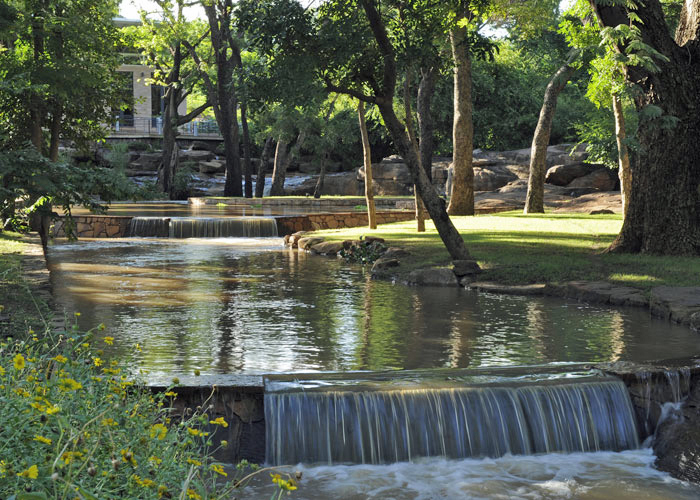 Created under a public-private partnership between the Government of Mali and the Aga Khan Trust for Culture, the 103-hectare National Park of Mali creates a permanent green space in one of the fastest growing cities in Africa. Courtesy of the Aga Khan Trust for Culture
Created under a public-private partnership between the Government of Mali and the Aga Khan Trust for Culture, the 103-hectare National Park of Mali creates a permanent green space in one of the fastest growing cities in Africa. Courtesy of the Aga Khan Trust for CultureSalima Chitalia worked as a Programme Support Officer with the Aga Khan Development Network in Mali between 2005–09. She is now based in Brussels.
Learn more about AKDN's activities in Mali at the AKDN website.

